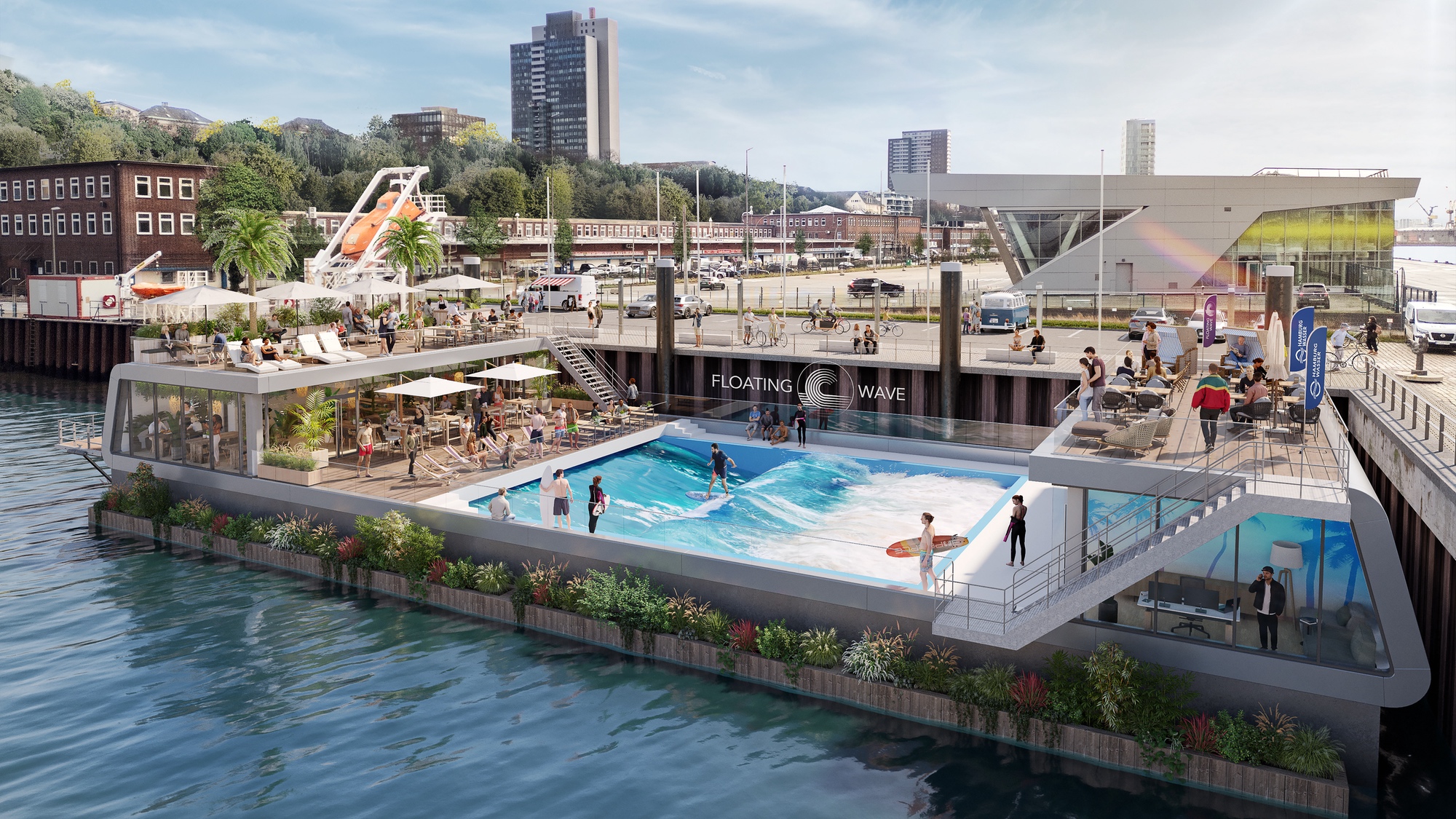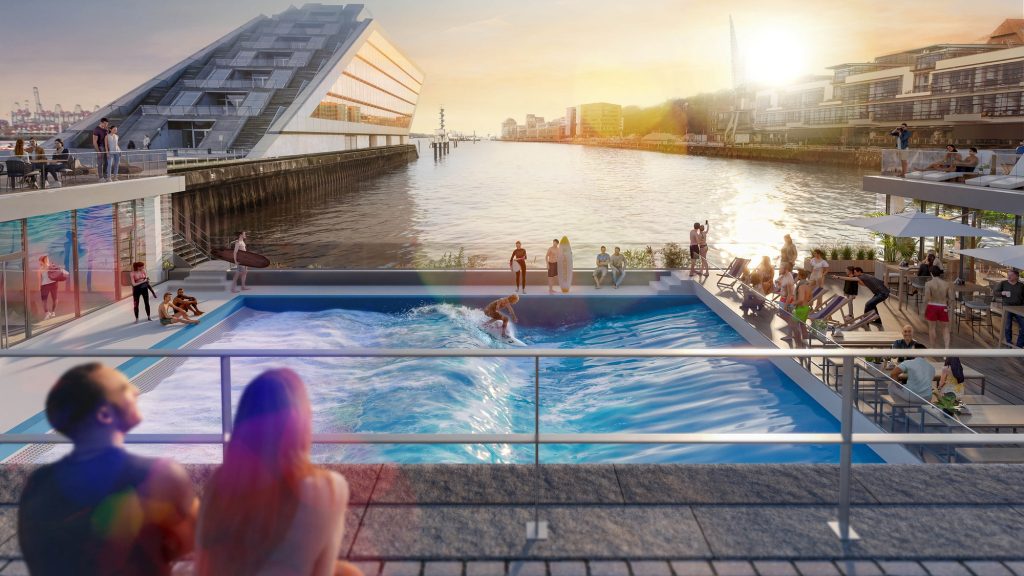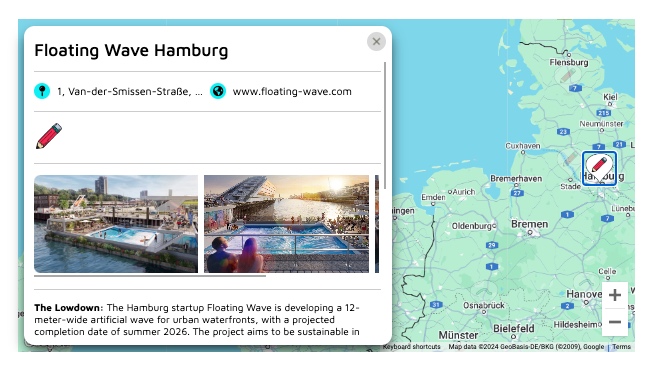New rapid wave project for Hamburg could finish in 16-24 months

The Hamburg startup Floating Wave is developing a 12-meter-wide artificial wave designed specifically for their unique urban waterfront. The project is set for completion by summer 2026 and aims to be sustainable in terms of energy and water consumption. Developers say the new wave pool also represents opportunities for tourism and investors, with plans for quick and cost-effective implementation in central harbor locations throughout Germany.
Floating Wave said that they use shipbuilding technology to create a floating pontoon wave that has a relatively small footprint and is ideal suited for densely populated areas. They added that Floating Wave’s design allows for easy set up in waterfront city centers. The rapid wave technology the project will use is Hydrostadium/Flow Surf.
“The central location in the Fischereihafen makes Floating Wave a highlight for Hamburg,” said Founder Felix Segebrecht. “Our thorough preparation and the broad support from politicians and businesses, as well as cooperation with environmental authorities and experts, have made this possible.”
Like many projects on the table and visible on our wave pool map, the Floating Wave Hamburg is seeking funding.

“We are excited about the support from the city and our seed investors for our smart low-tech
innovation,” added Felix Segebrecht. “Our next goal is to close the upcoming funding round to ensure a successful launch in the spring of 2026.“
One of the major benefits claimed by the company is that the new wave pool will consume 50% less energy than conventional systems. Water used in the pool will be filtered river water.
The Floating Wave pontoon measures 38 x 16 meters, while the wave pool is 19 x 12 meters, with a total water volume of 600 cubic meters. The system has an energy consumption range of 179 to 250 kW/h and can generate waves with a height of up to 1.6 meters.
“The Floating Wave in Hamburg combines sustainability, innovation, and passion to create a unique surf location in the heart of the city,” said Michael Zirlewagen, President of the German Surfing Association. “This project makes surfing accessible to both beginners and professionals alike, and has the potential to set a precedent for similar initiatives across Germany.”

The Technology: Floating Wave utilizes shipbuilding technology to create a floating pontoon wave that occupies a relatively small footprint, making it suitable for densely populated areas. The design facilitates easy installation in waterfront city centers. The project will employ the rapid wave technology known as Hydrostadium/Flow Surf.
Wave’s Technical Information: Rapid, or deepwater standing wave, that reaches a height of 1.6 meters in a 16-meter wide pool.
Hours of operation/Seasonal Hours: Floating Wave Hamburg plans to be open from March to October 7 days per week with plans to offer winter hours if there is demand.
Price Breakdown: Price-wise, Floating Wave Hamburg will start at 49 EUR per hour, and will offer 30-minute slots as well.
Waves per hour: One, never-ending wave.
Hours of operation/Seasonal Hours: Unavailable, but we’ll keep you posted.
Price Breakdown: None yet.
Waves per hour: One, never-ending wave.
Related Coverage
